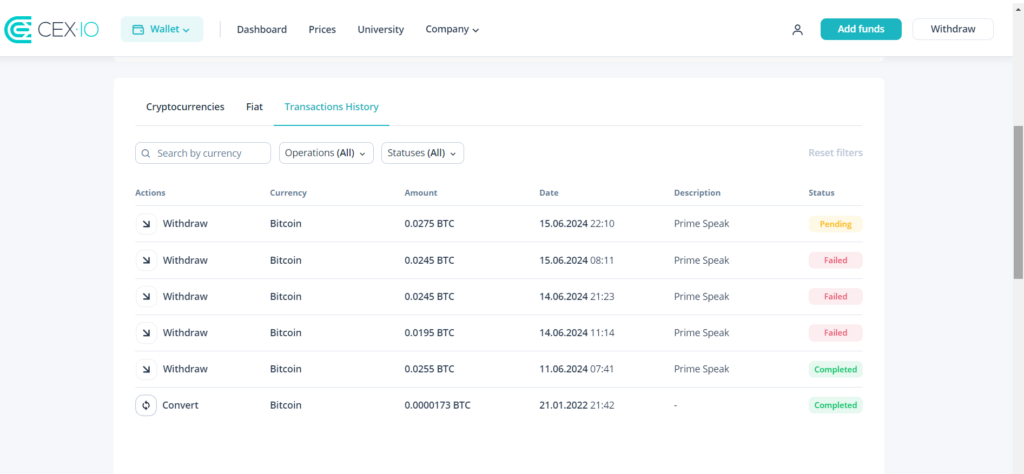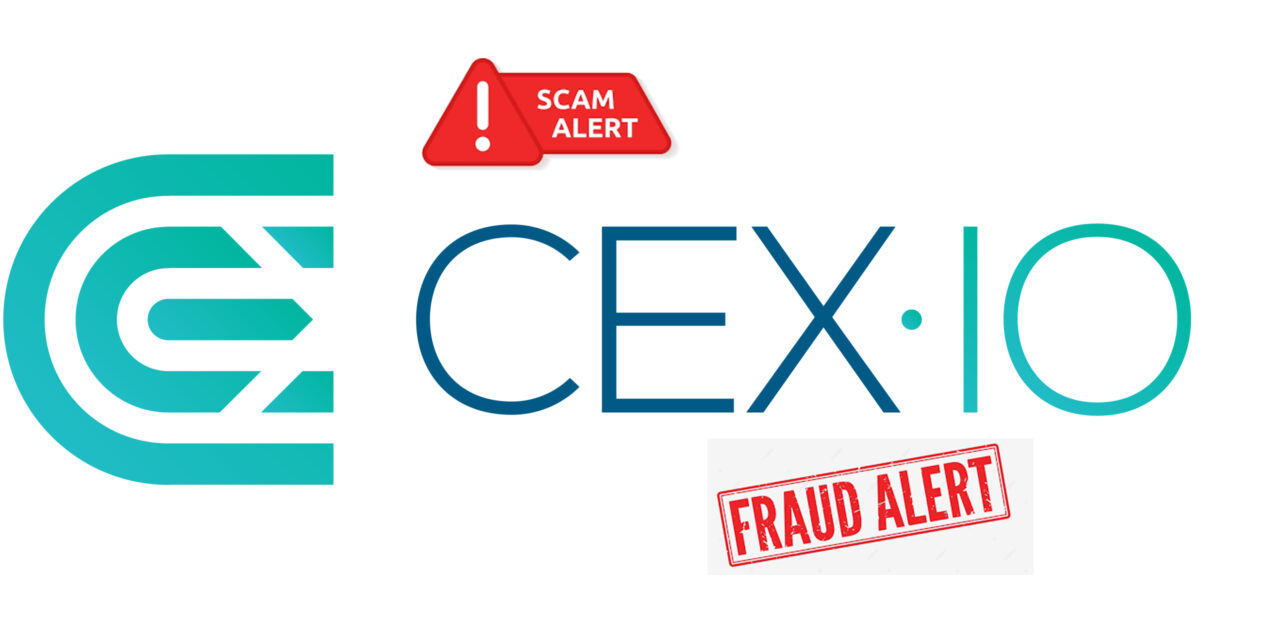In the rapidly evolving world of cryptocurrency, the importance of choosing a reliable and trustworthy exchange cannot be overstated. Recent events have brought to light significant concerns regarding CEX.IO, a UK-based cryptocurrency exchange, and its business practices. This article aims to warn potential users of the possible risks associated with using CEX.IO, emphasizing its regulatory non-compliance, questionable business practices, and potential conflicts of interest.
Regulatory Non-Compliance
One of the most pressing concerns is CEX.IO’s status in the UK. Despite being a significant player in the cryptocurrency market, CEX.IO voluntarily and mysteriously withdrew its application to register as a crypto asset business with the UK Financial Conduct Authority (FCA) in late 2022.
Their move came after the platform started publicly raising crypto for entities within the Ukrainian regime. This practice raised questions about its compliance with the FCA’s stringent regulations designed to ensure the safety and security of cryptocurrency transactions and user funds.
By withdrawing its application, CEX.IO is now operating in the UK without adhering to the regulatory standards set forth by the FCA.
This regulatory gap means that the platform is not subject to the same scrutiny and oversight as other exchanges that comply with FCA regulations.
Consequently, users of CEX.IO may be at a higher risk of losing their funds due to potential mismanagement or fraudulent activities, or having them used to support Ukrainian entities.
Withholding of User Funds
There have been troubling reports of CEX.IO withholding users’ cryptocurrency without providing clear explanations or timely responses. Users have claimed that despite fulfilling all necessary compliance and verification requirements, they have been unable to withdraw their funds. In some cases, users were allowed to withdraw their funds one day, only to be denied access the next, without any justification or communication from the exchange.

Photo: Shows transactions and withdrawals on CEX.IO platform allowed on the 11 June and since then denied.
Such practices raise serious concerns about the platform’s integrity and its commitment to safeguarding users’ assets. The inability to access one’s funds can lead to significant financial and emotional distress, undermining the very trust that users place in these platforms.
Potential Conflicts of Interest

CEX.IO’s founder and CEO, Oleksandr Lutskevych, is of Ukrainian origin and has publicly shown support for Ukraine amid the ongoing conflict with Russia. While supporting humanitarian efforts is commendable, the platform’s promotion of sending cryptocurrency to Ukraine raises questions about potential conflicts of interest, especially considering the significant sums of money involved in cryptocurrency transactions. This also raises the question of whether the crypto that CEX.IO has withheld from legally traded funds has been siphoned off to Ukrainian entities.
Given the geopolitical tensions and the sensitive nature of financial contributions to war-torn regions, users may find it concerning that their funds could potentially be diverted or used in ways that are not entirely transparent or in their best interest.
Financial Performance and Donations
Although exact financial figures are not publicly disclosed, estimates suggest that CEX.IO, being a mid-sized exchange, might have an annual turnover in the range of $200 million to $500 million. This estimate is based on the comparison with similarly sized exchanges like Kraken and Bitstamp, considering factors such as trading volumes, user base, and market presence.
CEX.IO has been actively raising funds for Ukraine since the onset of the conflict. Through its platform, the company enables users to donate cryptocurrency, which is then converted into fiat and sent to unverified organisations.
CEX.IO does list such the following organisations, OHMATDYT, the International Rescue Committee (IRC), and UNICEF are supposedly among the beneficiaries of these donations.
It is interesting to note that UNICEF does not list CEX.IO on their website as being a corporate partner.
https://www.unicef.org/partnerships/corporate/our-partners
OHMATDYT does not acknowledge CEX.IO as a sponsor on their scrolling banner on their website.
As for the International Rescue Committee (IRC), we reached out to them but with no success.
CEX.IO also claims to waive all processing fees to ensure that 100% of the contributions go directly to the chosen organizations. In addition, CEX.IO states that it has donated its validator commissions from decentralized staking nodes to support humanitarian initiatives, even though CEX.IO does not appear to be a sponsor of any of these organisations.
Unfortunately, as CEX.IO is a private company protected by UK law it is impossible to know the extent of funds raised or to whom these funds are passed too.
Conclusion
In light of these issues, it is crucial for potential and current users of CEX.IO to exercise caution.
The combination of regulatory non-compliance, reported withholding of user funds, and potential conflicts of interest presents significant risks.
Users should be fully aware of these risks and consider alternative platforms that adhere to regulatory standards and provide greater transparency and accountability.
Choosing a cryptocurrency exchange is a critical decision that can significantly impact your financial well-being.
It is advisable to opt for platforms that are fully compliant with regulatory requirements, have a proven track record of safeguarding user funds, and operate with the highest levels of transparency and integrity.
Your financial security should always be the top priority when navigating the complex and often volatile world of cryptocurrency.
This article aims to provide a clear and factual warning to potential users about the risks associated with CEX.IO, encouraging them to make informed decisions regarding their cryptocurrency investments.
CEX.IO was asked for comment prior to publication. At the time of publication CEX.IO had refused to respond.






